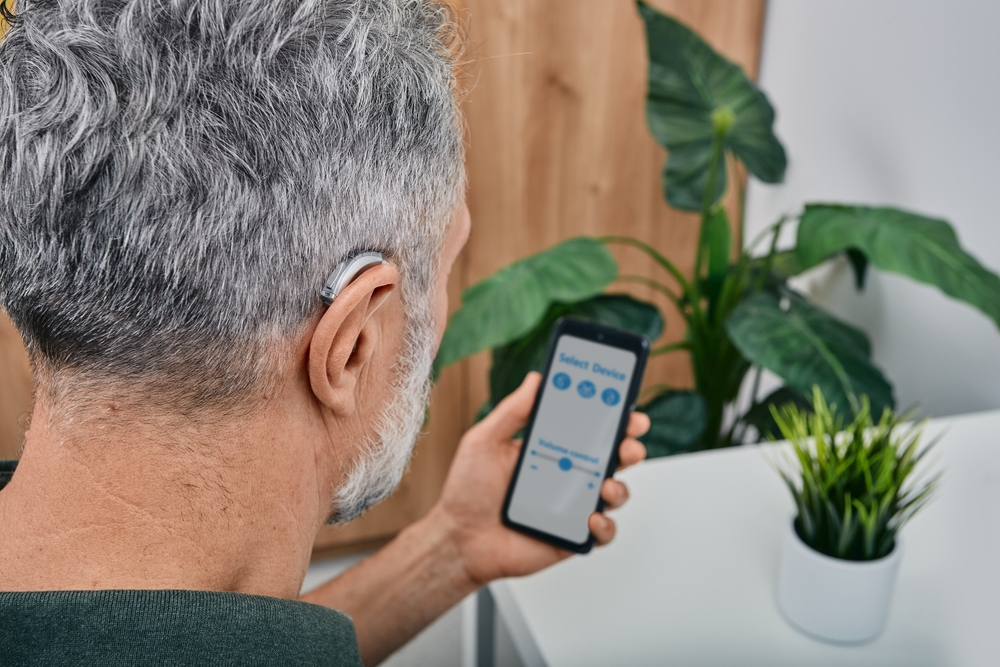
Even mild hearing loss can considerably impact everyday life, influencing interactions with friends, family members, and colleagues, as well as complicating regular tasks such as grocery shopping. However, the introduction of well-calibrated hearing aids can lead to transformative changes.
Top ten reasons to get hearing aids
While the chief advantage of hearing aids is obvious, improved hearing, their effect goes far beyond mere auditory enhancement. Let’s explore the comprehensive benefits that wearing hearing aids can offer.
Improved relationships and communication
Personal relationships rely on the ability to communicate clearly. Relationships can be tense when hearing loss causes missed communication. Hearing aids enable you to participate fully in conversations, improving your ability to interact with others and reducing feelings of separation or disappointment.
Being more independent
Untreated hearing loss results in obstacles in communication causing activities like buying groceries to become challenging. Hearing aids enable you to navigate these situations independently by improving your ability to hear and understand speech in a variety of environments. This increased independence extends to activities like driving, where improved situational awareness contributes to safer experiences.
Possibility of making more money
In professional situations, successful communication is crucial. Untreated hearing loss can impede your ability to engage in meetings or discussions fully, potentially influencing job performance and career advancement. You can boost your productivity, which can, in turn, bring about career opportunities, by using hearing aids to stay more alert and engaged.
Discomfort from tinnitus can be reduced
Hearing loss is frequently accompanied by tinnitus symptoms or ringing in the ears. Hearing aids can provide relief from tinnitus for some individuals by masking symptoms.
Mitigated cognitive decline
Some studies have uncovered a link between untreated hearing loss and cognitive decline, including dementia. It’s possible that using hearing aids to treat neglected hearing loss can decrease the chance of cognitive impairment and help sustain the overall health of the brain.
The ability to enjoy music
Hearing loss can distort the perception of music, making it less enjoyable. Hearing aids replenish the richness and depth of musical sounds by compensating for gaps in frequency, allowing you to rediscover the excitement of listening to your favorite songs.
Boosted confidence
Whether you’re in a social or professional situation, being able to hear better will give you more confidence. Your overall quality of life will be improved and you will feel more capable when you can communicate better.
Increased energy levels
Neglected hearing loss forces the brain to work extremely hard to fill in missing sound which can be mentally exhausting. Hearing aids reduce this strain, providing mental relief and allowing you to enjoy activities without feeling continuously tired.
Improved safety and awareness
Awareness of one’s surroundings is crucial for safety, whether it’s crossing the street or driving a car. Environmental sounds can be restored by hearing aids, making certain that your response to things including alarms and approaching vehicles is safe and appropriate.
Establishing a positive example
Choosing to wear hearing aids displays a proactive approach to health and well-being, establishing a positive example for other people facing similar challenges. It exhibits a commitment to personal growth and improvement, inspiring those around you.
Get your hearing checked today
While the primary advantage of hearing aids is to enhance auditory perception, the ripple effects on other facets of life are powerful. Whether it’s nurturing stronger relationships, maximizing independence, or safeguarding cognitive health, the decision to wear hearing aids is a step towards a more rewarding and engaged life.
Take the first step towards hearing better today by scheduling a hearing assessment with us.